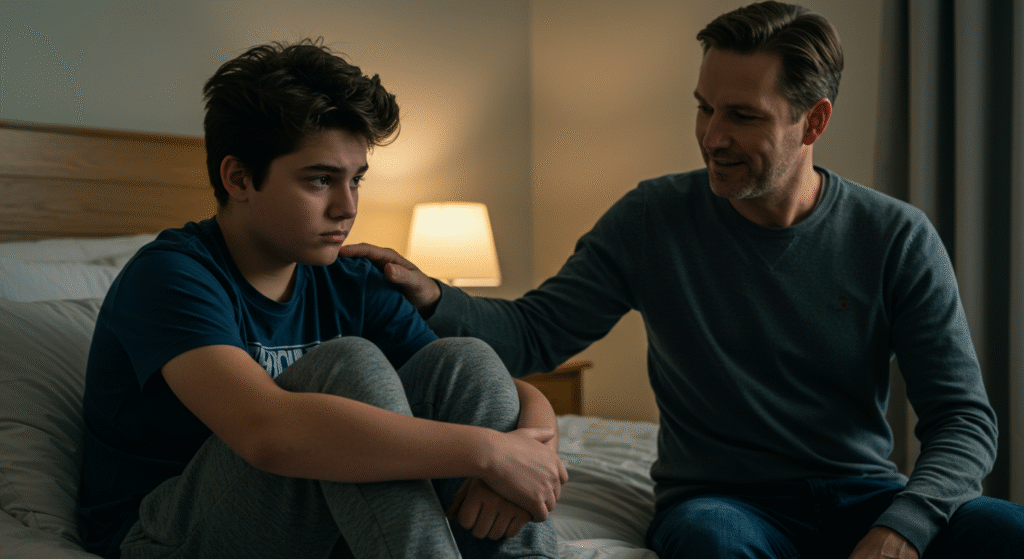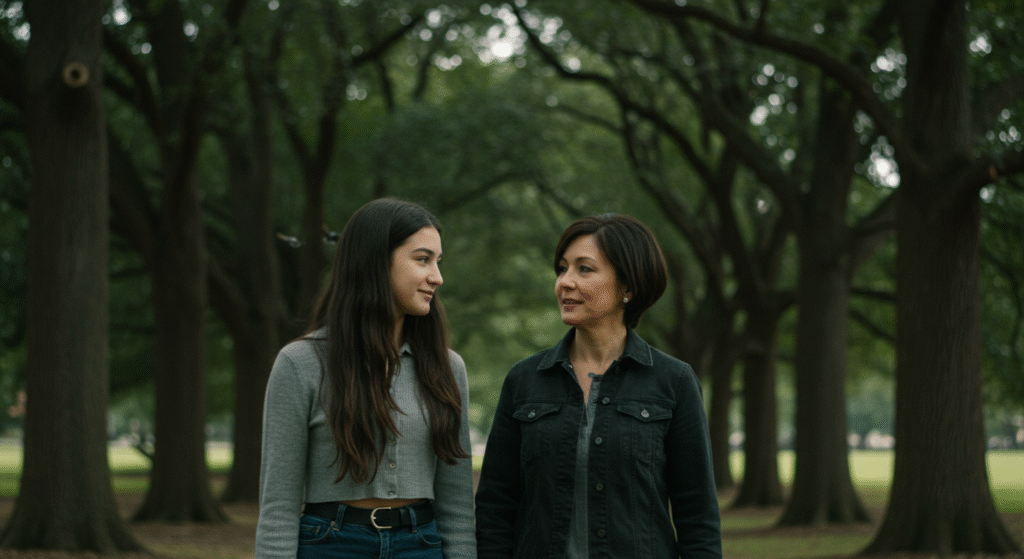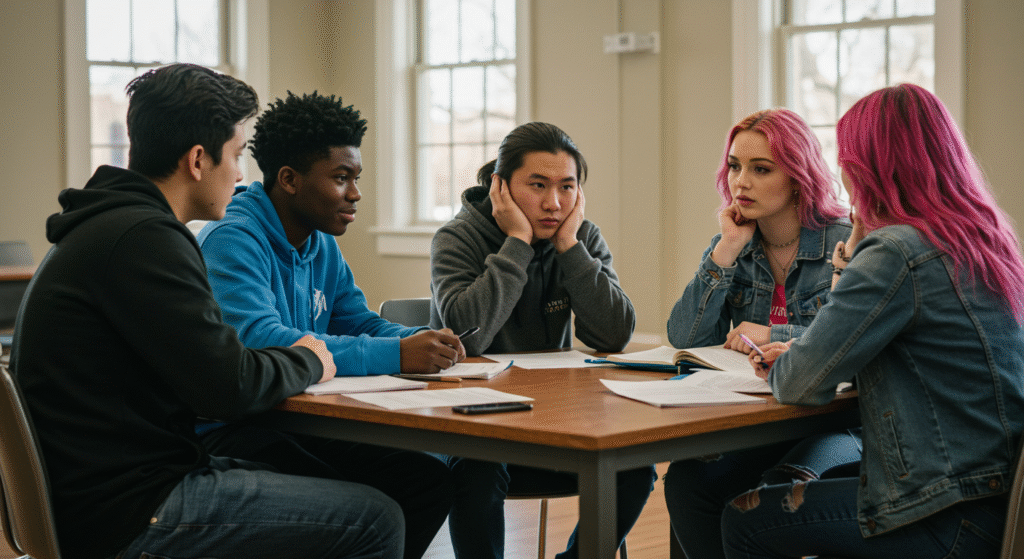Help Your Teen
To deal with conflict is strenuous in the first place. As a matter of fact, dealing with problems is not easy—especially during the adolescent years. Not to mention, your child is already going through many changes in their body and mind. Conflict simply adds another complex layer at a time in life when things may already feel like chaos. Their emotions are heightened, friendships are shifting, and self-identity is developing.

Be There for Your Teen
As a result, you should be there for your child during difficult times. You can be a stabilizing voice in their life. Here’s how you can help your teen deal with conflict in a way that helps them grow from the experience and find peace in the process. These are examples of how conflict can be turned into a learning moment—not a lifetime scar.

Learn from Mistakes
It is critical to remind your teen that while conflict is tough, it often brings valuable lessons. Mistakes are learning moments—not failures. Encourage your teen to reflect on what went wrong, what triggered the disagreement, and how they might handle similar situations differently next time. Teaching them this mindset builds resilience.

Gain Self-Awareness Through Conflict
When there is a disagreement, it’s a unique chance for your teen to learn about themselves. They may discover that they need to work on their patience, communication, or self-control. Alternatively, they might realize that standing up for what’s right—even if it makes others upset—is a form of strength. These are self-awareness wins that come from struggle.

Learn About Others
On the positive side, conflict is also a mirror—showing who’s in your corner. Your teen can observe how others respond during disagreements. Are their friends fair or manipulative? Do teachers or family members respect their voice? Helping teens identify supportive vs. toxic relationships is a life skill they’ll always use.

Use Conflict as a Launchpad for Change
Sometimes we need discomfort to recognize that we’ve outgrown a place or relationship. Conflict might encourage your teen to switch schools, break off a bad relationship, or reevaluate their goals. What felt like failure may be a blessing in disguise. Help your teen see conflict as a signal—not just a storm.

Be an Emotional Support System
In times of conflict, unconditional love from you matters most. Your teen may not say it, but your calm voice, listening ear, and presence mean everything. Be a role model by managing your own emotions well. Show them how to resolve issues with integrity and compassion.

Final Word: Teach Growth Through Conflict
Conflict is hard—but it’s also a tool. If handled with empathy and wisdom, it can teach your teen about emotional regulation, communication, and courage. Let them know you’re in their corner. With your guidance, they’ll grow into someone who doesn’t fear problems—but faces them with grace and confidence.


